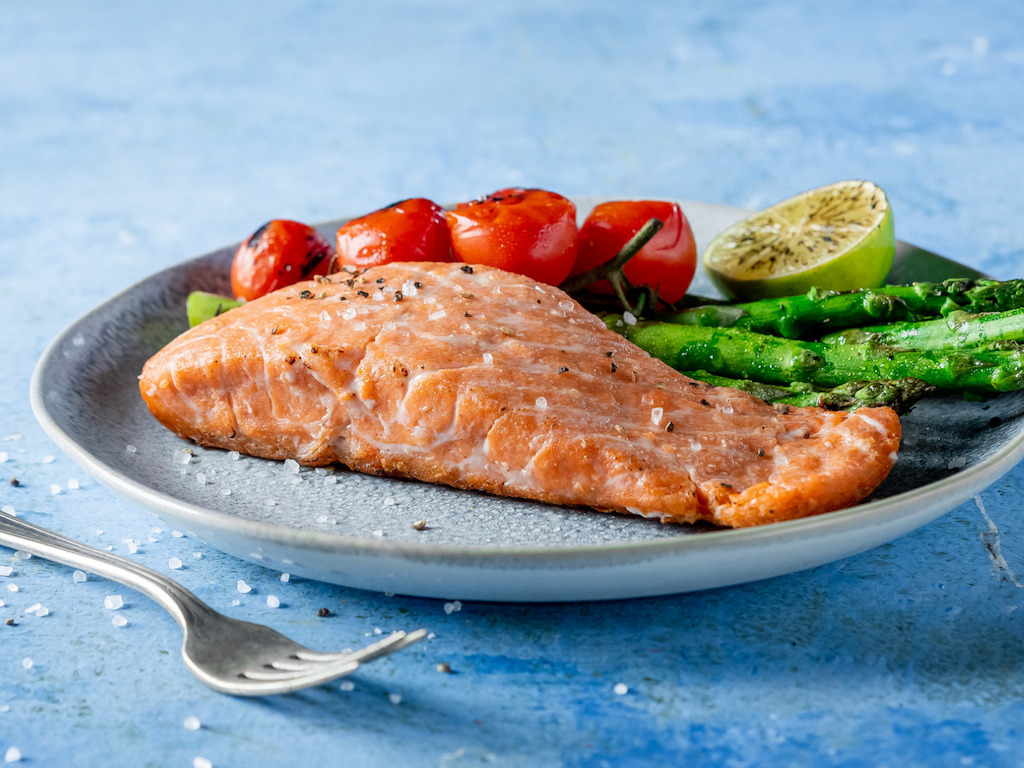8 Mins Read
We dive into some of the headlines that topped plant-based alternative protein space, from vegan labelling wars to never-seen-before product launches. Here’s what the plant-based sector brought for us in 2022.
1. Plant-based milk sales top $2.3 billion
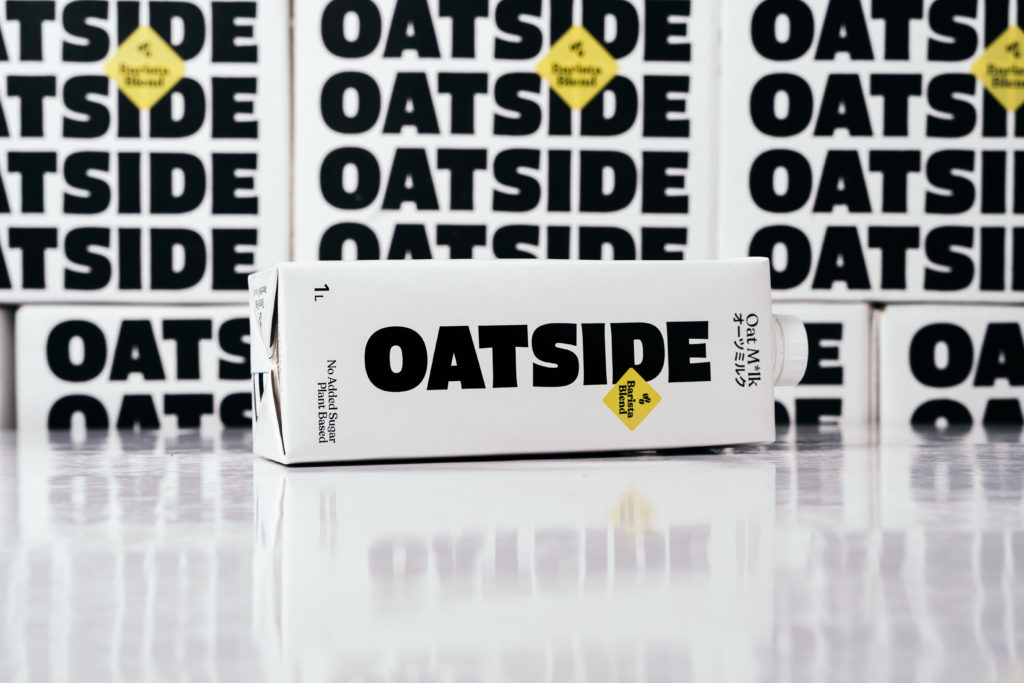
Vegan milk sales in the U.S. reached new highs (yet again) this year, growing 6.4% to almost $2.3 billion in June. Almond milk remained the category leader, taking up $1.2 billion of the share of sales, but oat milk saw a major hike of 50%. Exact figures for other markets are not yet available, but no doubt oat milk’s rise was a global phenomenon. South East Asia saw the arrival of a new homegrown brand Oatside to rival category giant Oatly’s popularity across the Asian region. Over in India, Bengaluru-based Alt Co. caught the attention of investors with a $1M round for its barista-approved oat milk line.
2. Vegan labelling wars continue
2022 was a year of more debates over plant-based labelling. There were some wins. In April, the case Tofurky won its lawsuit in the Louisiana courts against the 2020 ban over the use of “meaty” terms for vegan products. In the ruling, the judge sided with Tofurky’s First Amendment violation challenge, in essence allowing products like vegan sausages and plant-based burgers to be labelled as such. Months later, we saw one of the most iconic American legacy brands in the plant-based space, Tofutti, finally add the term “vegan” to its packaging. India also hailed a win, with authorities working on further clarification of vegan definitions. However, the labelling dispute is still ongoing in Turkey, where the sale of vegan cheese is banned entirely on grounds of “deception”. In July, activists decided to sue, challenging it as unconstitutional.
3. Impossible Foods forges ahead with global expansion
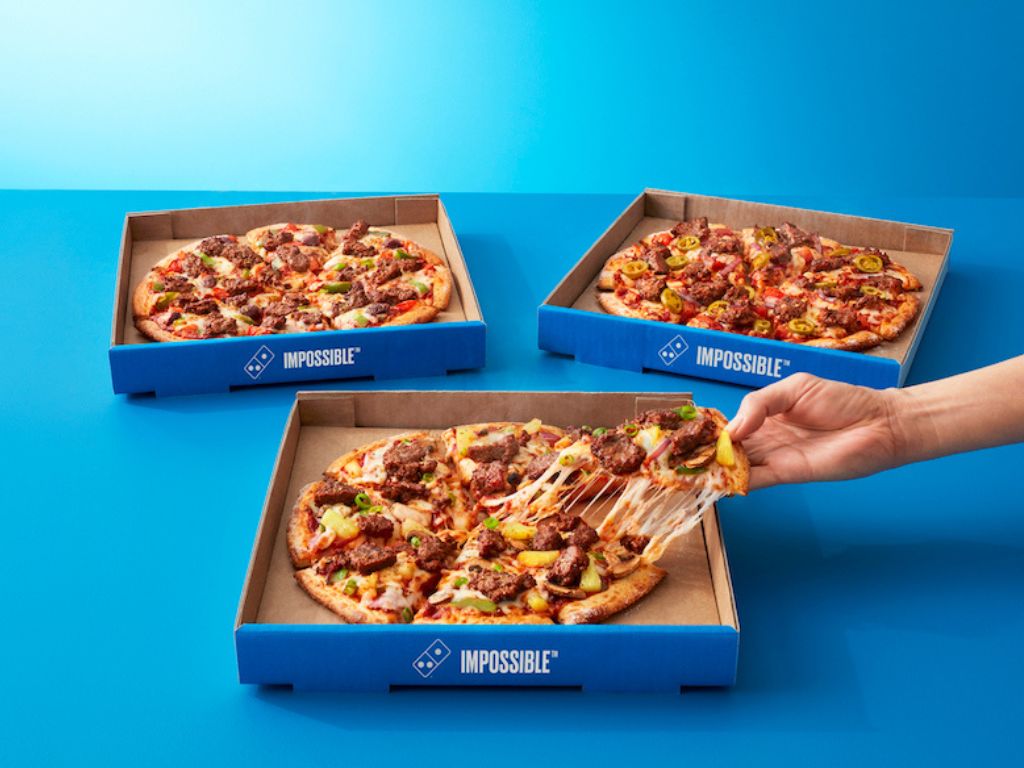
Impossible Foods kept pushing on with its expansion plans over the year, most notably in the Australian and New Zealand markets. In March, the brand landed in retail giants Woolworths and Countdown in both countries. Just months later in October, Impossible brought its plant-based beef to pizza chain Domino’s. The brand also made inroads in Asia, where it debuted its vegan chicken nuggets in Hong Kong. But it hasn’t been good news all the way for the company, as it faced a legal battle with Motif Foodworks over its signature heme ingredient early on in the year (the case is ongoing and in Europe, Impossible saw one of its patents revoked), as well as its decision to layoff 6% of its workforce as part of a restructuring plan following founder Pat Brown’s exit as CEO and generally turbulent market conditions. The company is now helmed by former Chobani executive Peter McGuinness, while Brown retained a role as “Chief Visionary Officer”. A few months later, the company announced Brown would be heading up a new research arm dubbed Impossible Labs. However, in November, the visionary former CEO confirmed he was taking a leave of absence from the company until March 2023.
4. Food giants hop on the vegan cheese train, debut slew of plant-based food offerings
As plant-based eating becomes even more mainstream, 2022 saw large food corporations take up the opportunity to expand their vegan offerings. First up was France’s dairy giant Bel Group, which launched a vegan Babybel in January, with a plant-based version of The Laughing Cow to come soon. After announcing a partnership with Chile’s vegan leader NotCo in February, Kraft Heinz unveiled new products in October, including dairy- and egg-free mayonnaise, as well as three vegan cheeses: American, provolone and cheddar. In December, Kraft also rolled out a vegan edition of its iconic Philadelphia cream cheese in its domestic U.S. market after its debut in the U.K. Outside of the cheese space, big food corporations also doubled down on their overall vegan ranges, such as IKEA’s moves towards making 50% of its menu veggie, and Amazon Fresh adding over two dozen new vegan food products to its platform.
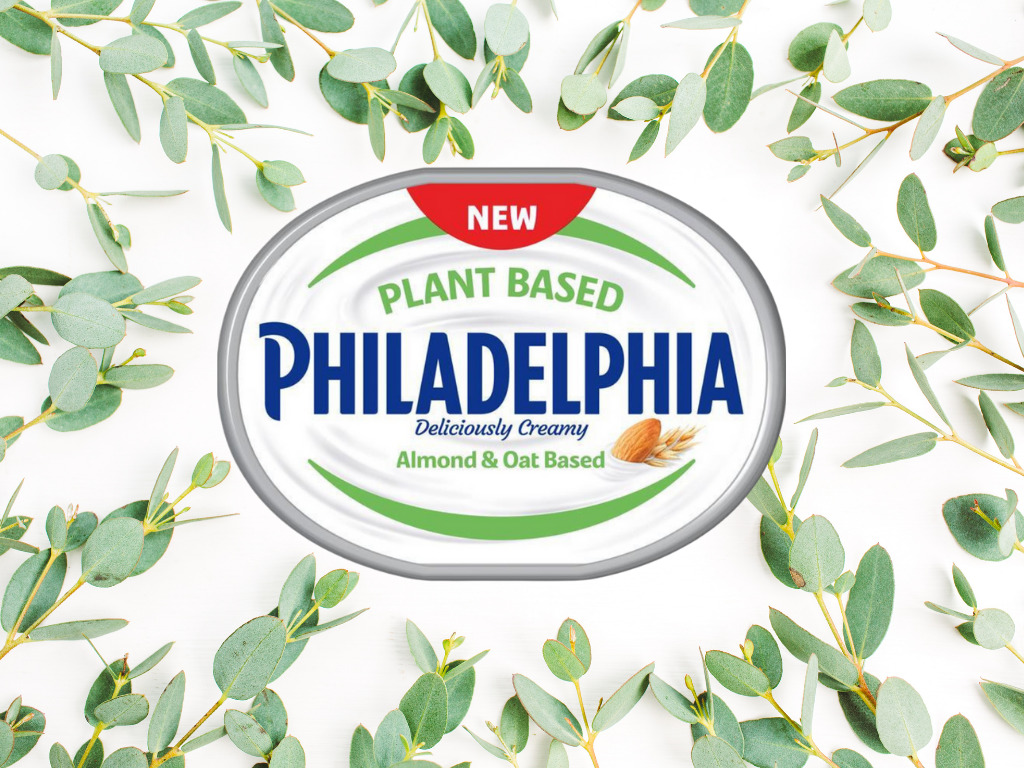
5. Beyond Meat’s no good, very bad year
Unfortunately, 2022 was a bit of a write-off for food tech giant Beyond Meat. In June, Don Lee Farms lodged yet another lawsuit against its former co-manufacturer, alleging Beyond of unfair competition via misleading ads, on top of its previous accusation of breach of contract, fraud and arrears. Then, amid missed sales targets, a scandal involving its COO Doug Ramsey being arrested for attacking another man, as well as the ultimate failure of its much-anticipated partnership with McDonald’s to supply the McPlant burger, Beyond announced job cuts of nearly 20% of its workforce. Some hope to end the year, though, with the brand scoring a deal to stock its plant-based burger at 1,600 Rewe supermarket locations in Germany after its PR highlight of getting Kim Kardashian on board as a “Chief Taste Consultant”.
6. Vegan cheese and plant-based eggs take off across Asia
While vegan cheese and egg alternatives saw major mainstreaming in the U.S. and European markets last year, the category skyrocketed in Asia over the course of 2022. We saw the region’s first-ever dairy-free festival held in Jakarta, as well as a whole bunch of product launches. Thailand welcomed its first vegan cheese factory, Indonesian food tech Green Rebel entered the egg- and dairy-free realm, and South Korea’s Armoured Fresh secured $23M this year to bring its almond-based cheeses to new markets. In the egg alternative space, India’s Evo Foods says it will work with Ginkgo Bioworks to create even more realistic analogues, while Japan saw the rollout of two new egg alternatives: Umami’s konjac-based product, and Kewpie’s soy-based “Hobotama” that mimics scrambled eggs.
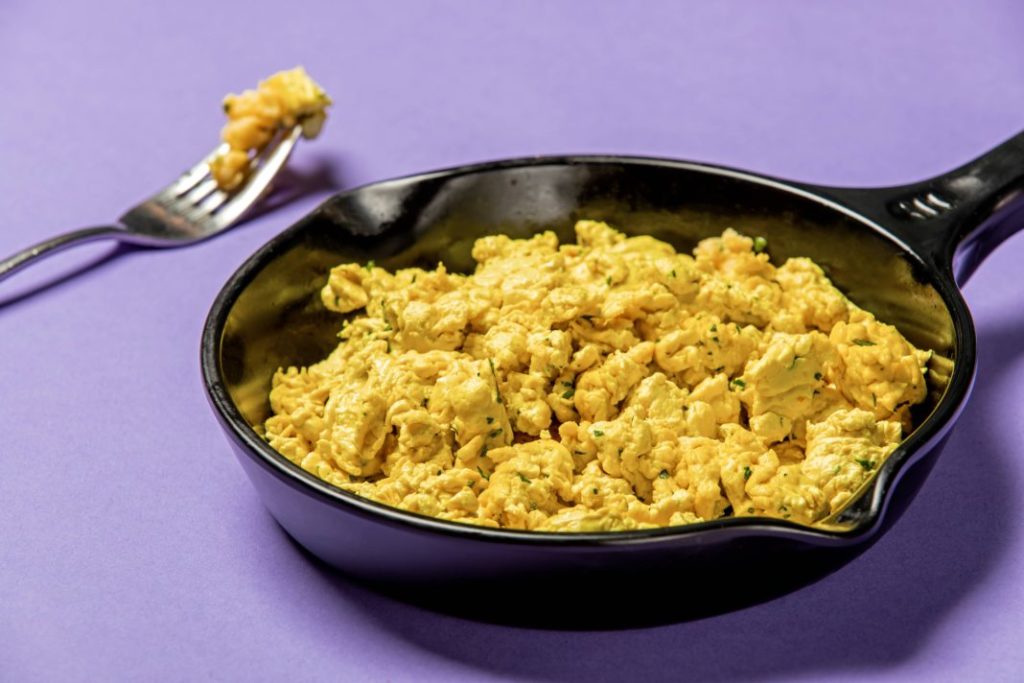
7. Huge funding rounds for vegan meat players
Three vegan meat makers saw major inflows of capital to continue their expansion, despite the global economic downturn. It kicked off with Chinese plant-based meat maker Starfield’s $100M Series B in January, which went towards building a new commercial factory line for everything from vegan pastrami to meat chunks. Then in March, Next Gen Foods bagged a whopping $100M, the largest single Series A investment in the sector to date, for its vegan chicken brand TiNDLE which has since landed in Veggie Grill locations stateside. Fast forward to September, Swiss startup Planted scored $72M in a Series B geared to expand its range of clean-label whole-cut analogues.
8. Plant-based innovation abounds chickpea ice cream, plant-based loin & fish-free seafood products galore!
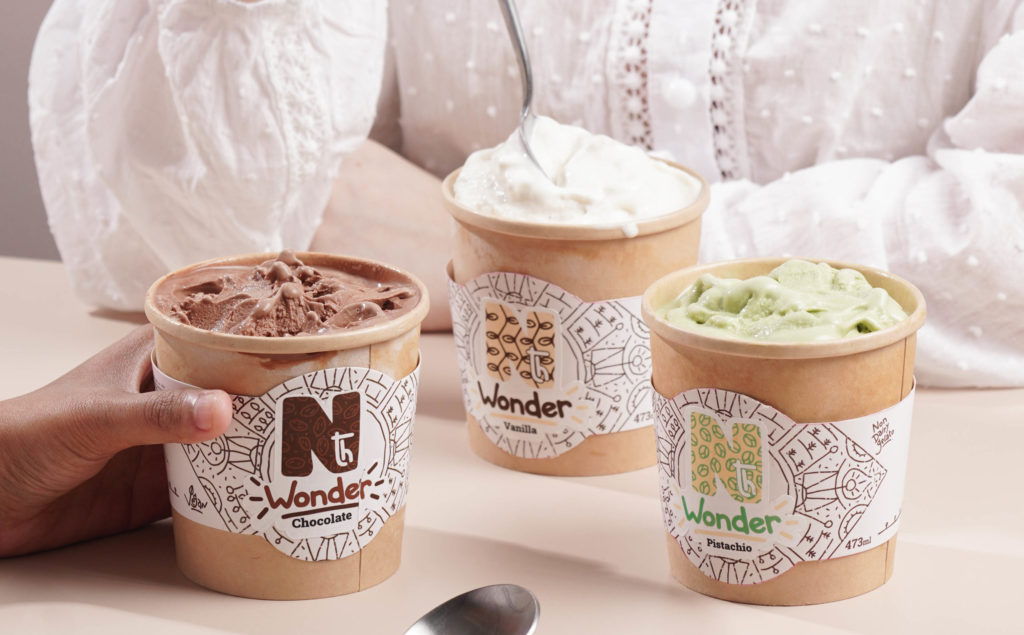
The plant-based alt-protein seriously stepped up its game with a number of never-seen-before products. These included Juicy Marbles’ whole-cut loin, which it described as the “biggest, most insulting piece of plant muscle ever conceived”, Haofood’s peanut-based chicken, FairFlavor’s gelato made using kenari nuts, and ChickP’s vegan ice cream, made from–you guessed it–chickpeas. In the vegan seafood category, we saw an outburst of newbies, from Thai Union’s vegan shrimp to not one, but two ultra-realistic salmon fillets: Revo Foods’, which is mercury-free and 3D-printed, and Plantish’s whole-cut version. There’s even vegan snapper debuted by SeaSpire, unbreaded fish fillets that Jack & Bry made using jackfruit, and famous frozen foods brand Birds Eye’s new fishless battered fish. And it looks like the seafood space won’t be short of innovation in the months to come either, with Seafood Reboot netting $3.3M in May, promising to launch a whole new line-up of regenerative algae-powered alternatives.
9. France’s plant-based scene finally picks up pace
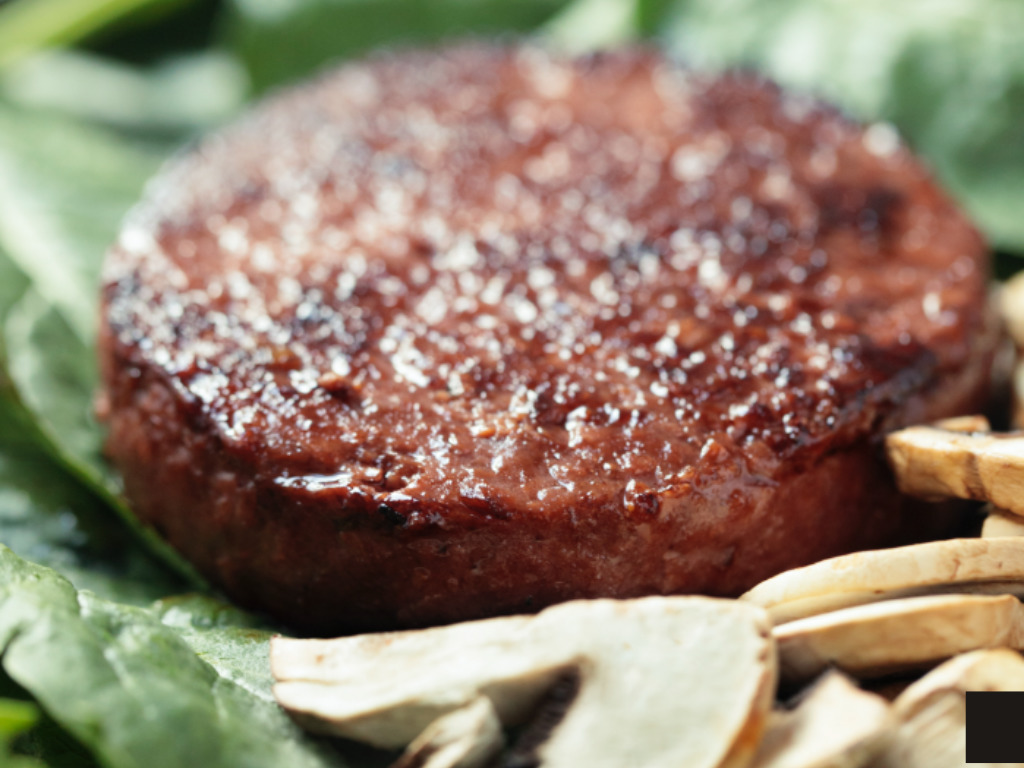
2022 was a year when the French plant-based scene (finally) got going to catch up with neighbouring European countries, starting off with fast food chain Burger King’s move to add vegan bacon to its menu. In May, the QSR, which made serious plant-based inroads in Europe, Asia and the Middle East over the course of 2021, partnered with La Vie Foods to use plant-based bacon rashers for its Veggie Steakhouse burger. One month later, homegrown food tech HappyVore bagged €35M to fund the buyout of a Chevilly-based facility, which is the largest specialist vegan meat factory in France. To round out the year, plant-based meat maker Umiami took over a former Unilever factory to kickstart large-scale production of any type of vegan meat and fish. According to Umiami, after a full revamp, the factory may be able to churn out upwards of 22,000 tons of whole-cut meat–that could make France a serious alt-protein powerhouse to watch.
10. Vegan alt-protein takes off in a big way across India
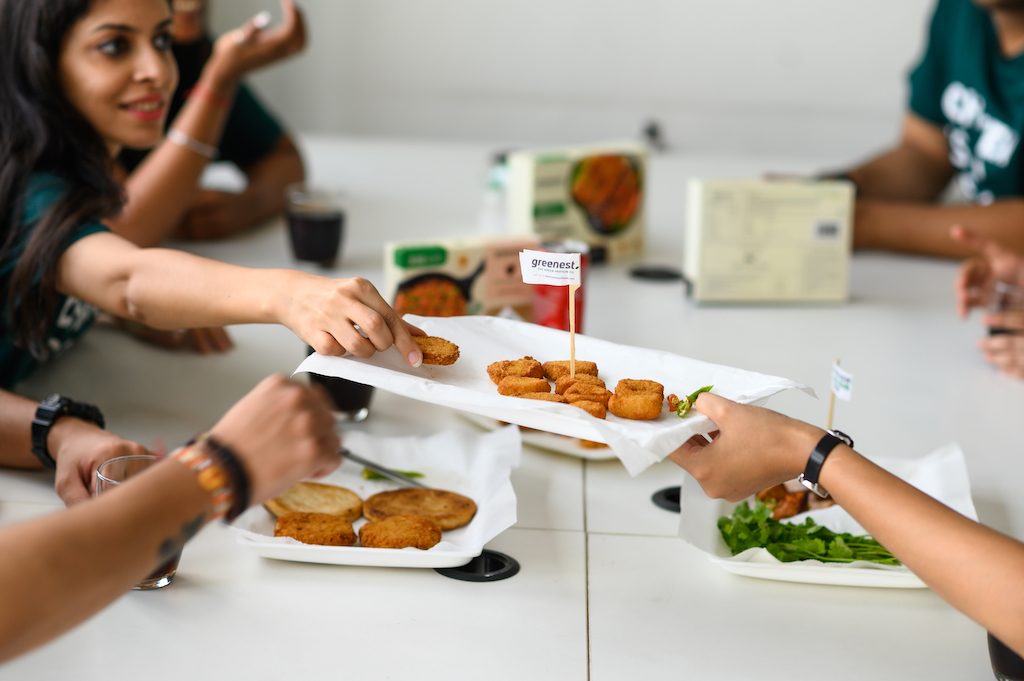
India’s plant-based industry also had a breakthrough year. It started out with Indian delivery giant Swiggy’s deal with homegrown vegan firm GoodDot to add a separate plant-based category to its platform, then Mumbai-based Blue Tribe Foods scoring Bollywood celebrity and cricket star Anushka Sharma and Virat Kohli as brand ambassadors. Soon after, India’s leading spices company Agromatic Nutrifoods revealed a whole new line of frozen vegan meats, from kebabs to nuggets, while Evo Foods covered all the alt-protein bases with what was the world’s first heat-stable vegan boiled egg. In the Spring months, BVeg Foods began upgrading its analogues by working with Swiss production leader Bühler, which will mean we get one step closer to ultra-realistic whole muscle cuts, while the Greenest brand continued expanding its range with burger patties and more (and has since closed a pre-seed round too). Drink maker Novolutions said it’ll enter the vegan meat space with meatballs and even “spicy fingers”. Perhaps the most exciting news of all was coffee giant Starbucks’ collab with Imagine Meats to bring everything from vegan sausage croissant rolls to hummus kebab wraps to stores across the country.
Lead image courtesy of Plantish.

